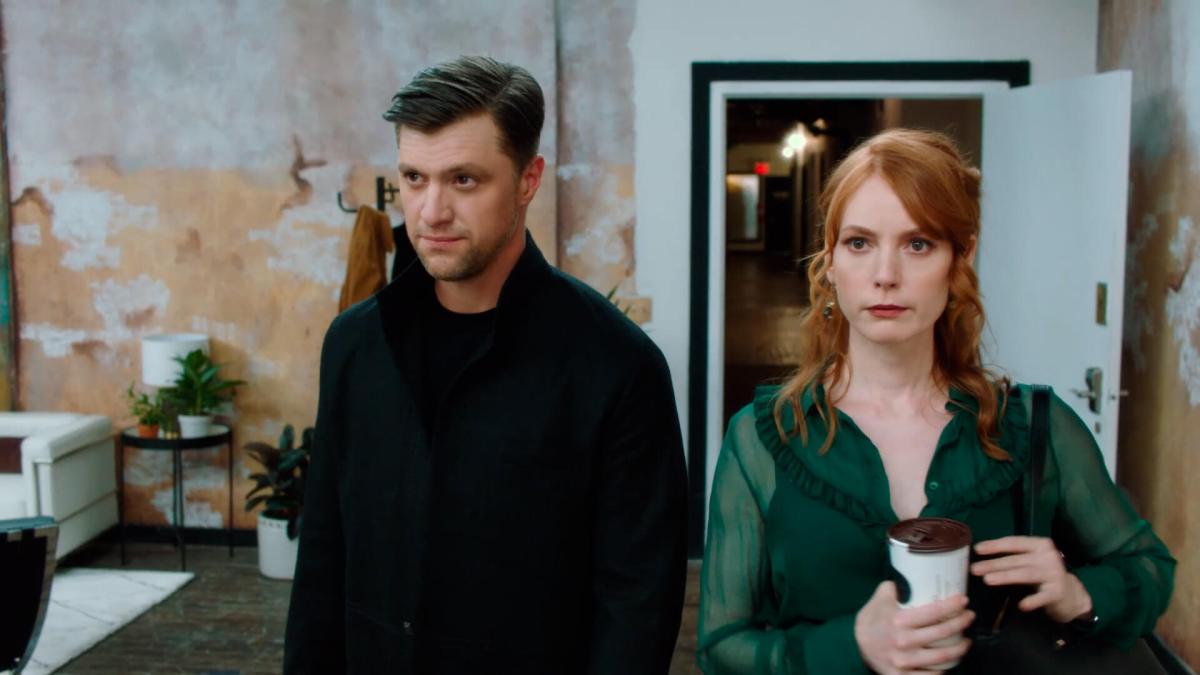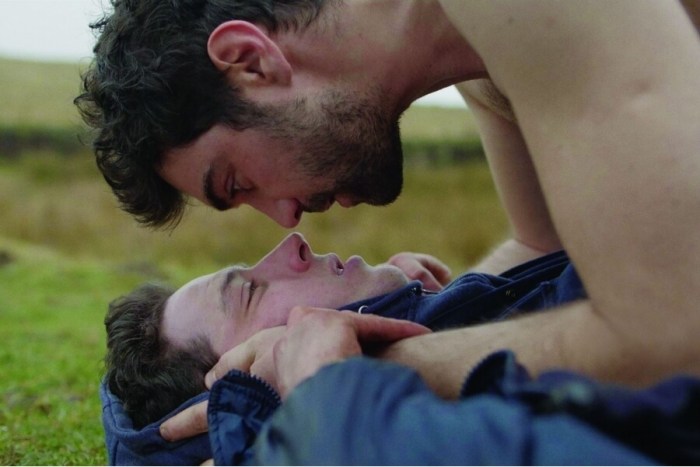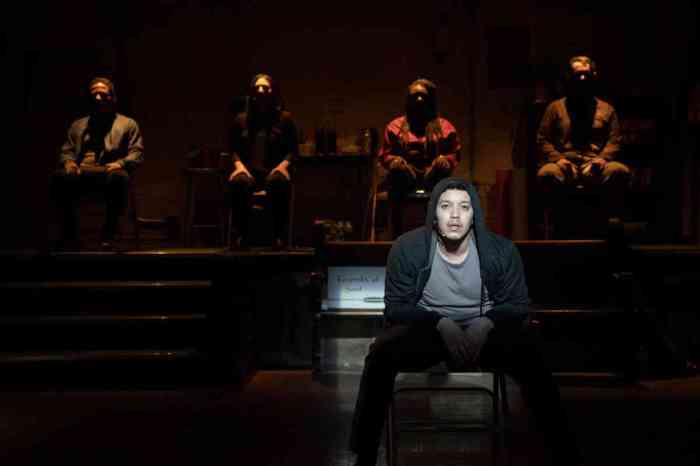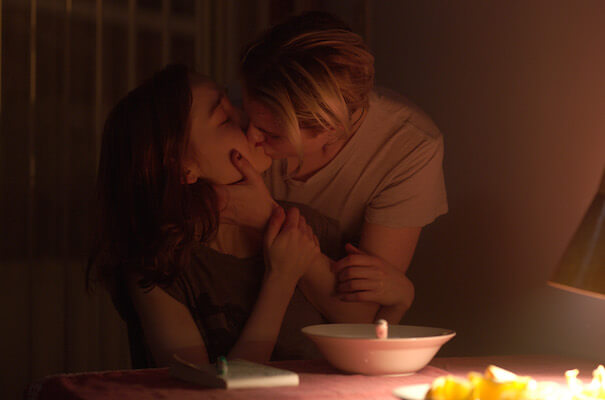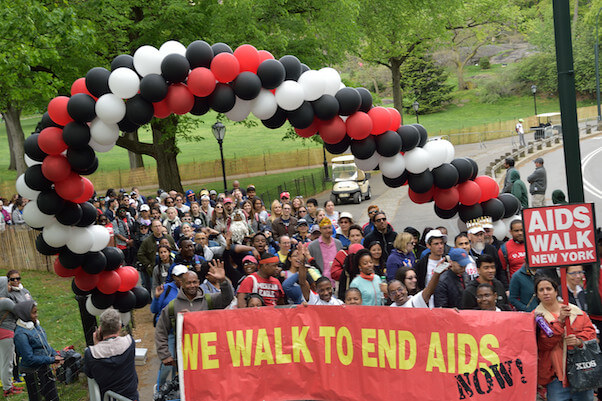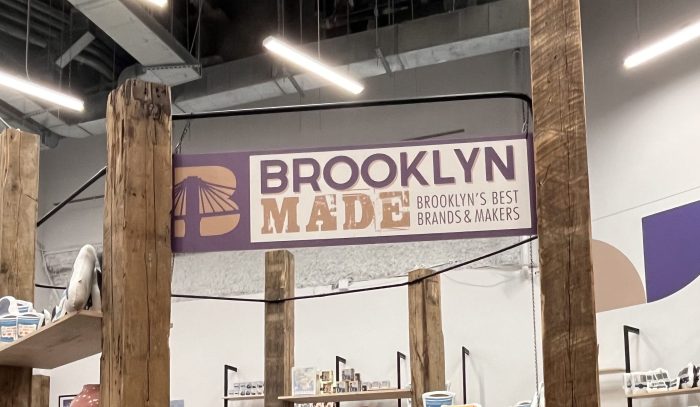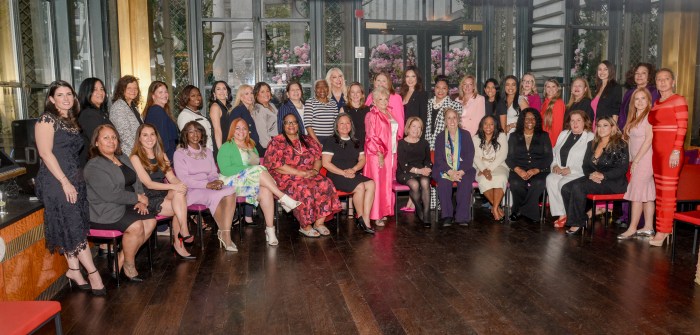A contemporary spin on a Jane Austen classic, “Modern Persuasion” is a fleet and amusing romantic comedy of manners. Co-written (with Barbara Radecki) and co-directed (with Alex Appel) by the out gay Jonathan Lisecki — of “Gayby” fame — the film has boutique agency rep Wren Cosgrove (Alicia Witt) grappling with love in Manhattan.
Wren reconnects with Owen Jasper (Shane McRae), an ex-boyfriend from college, when he meets with her agency about an account. Seeing Owen again causes Wren anxiety, however, and when Wren sees posts of Owen out partying with her colleagues, Kate (Daniella Pineda) and Crystal (Tedra Millan), she gets jealous. Meanwhile, Wren’s protective aunt (Bebe Neuwirth) wants to set her up with Tyler (Christopher O’Shea), who runs a rival agency. Things become even more complicated when Wren meets Owen’s colleague, Sam (Dominic Rains), and romantic sparks fly. Suddenly, the single woman has three possible suitors.
Jonathan Lisecki talks about the romantic comedy he co-wrote and co-directed
“Modern Persuasion” holds true to Austen’s storyline, and there are references, such as Wren’s cat named Wentworth, that fans of the novel will recognize and appreciate. But the film’s spark is the witty dialogue and romantic permutations.
Lisecki chatted via Zoom with Gay City News about his new film.
GARY M. KRAMER: What is the appeal of Jane Austen in general, and why “Persuasion” In particular?
JONATHAN LISECKI: It’s an old fashioned romantic comedy that embraces all the tropes; it does not twist them. The stories are so classic, and they have an appeal that goes beyond their time. It was interesting for me to try to update this specific story. I changed characters, added some characters, updated the language, and made allusions to the novel. I made the name of Owen’s company the name of the ship in the book. The puzzle of adapting it to now was incredibly interesting, but not always easy. It’s not a plot-heavy book. It was like a little chess game. This is a romance film with comedy.
KRAMER: How did you lean into the manners of Austen — the chivalry and loyalty — but also capture our contemporary social media-obsessed culture? What makes this update timely?
LISECKI: While adapting the structure and trying to honor the original story, I think it’s important to still make it as contemporary as possible. The younger characters had some chirpy, youthful enthusiasm in the original script. I bumped it up to more social media-savvy. I think the fanbase is pro-Jane Austen, but you also have to make it for people who have no knowledge to enjoy. “Clueless” was very specific. “Bridget Jones’ Diary” is a mashup of Jane Austen stories. “Modern Persuasion” has more in common with that style — honoring yet updating, and also keeping it as fresh as possible.
KRAMER: The film has a feminist bent; all of the women in the film are self-possessed and not pawns for the men. Can you talk about creating these empowered characters?
LISECKI: My life is filled with strong, empowered women and I want to make sure that’s always a part of the character. I don’t like stories were women are pitted against each other. No one is a villain here. They are just having different experiences. They understand each other. It’s important to me that the characters are well rounded, there is some sort of diversity, and some sort of LGBTQ representation. And when the project arrived to me, that was inherent in what they wanted. I beefed it up a notch. All the characters in the film are taken from someone in the book.
KRAMER: What are your thoughts on masculinity in the film? The guys in “Modern Persuasion” are all lovelorn, but each, in his own way, is a gentleman. Can you talk about the men?
LISECKI: That is also inherent to the original story. Except the father figure, the Grayson [Mark Moses] character in the film. In the book he’s a comedic character. Austen is working out stuff about class and her own family and snobbery via that character. I did the same as much as I could, but almost all of the other male characters in the novel are completely sympathetic — even though they are sad sacks in different ways. You do relate, and you want them to accomplish whatever their goal is.
KRAMER: What observations do you have about the relationships in the film? There are flirtations, flings, rebounds, odd couples, and marriages. What do you think “Modern Persuasion” is saying about love, lust, heartbreak, and romantic despair?
LISECKI: I think it says a lot about romantic despair. The kernel is that line between renewed hope and realistic expectations — that stuff is very interesting. When do you decide to have faith that something might work? That’s the crux of the film. Neither Wren nor Owen can decide at the same time that they should try love again.
MODERN PERSUASION | Directed by Jonathan Lisecki and Alex Appel | Samuel Goldwyn Films | On VOD/ digital
To sign up for the Gay City News email newsletter, visit gaycitynews.com/newsletter.

